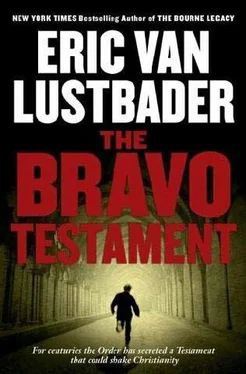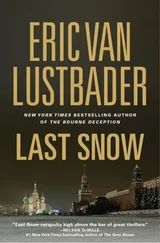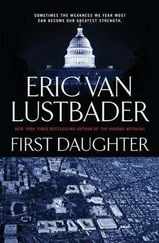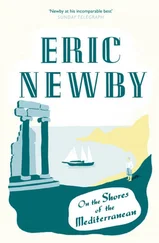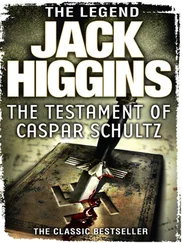She had made sandwiches, and there was a carafe of ice water and two red plastic tumblers on an old-fashioned folding bridge table to which she had pulled up a pair of metal folding chairs.
A part of him didn't want to talk to her at all. She was so willful and hardheaded. Then, astonished, he realized that it had been those two words his father had often used to describe him. He waited a moment, unsure how to proceed. In the unkind light, the duskiness of her skin turned sallow, her gray eyes receded into pools of dark shadow. Her wide mouth held no promise for him. How long could he be angry with her for the situation he was in? He felt suddenly spent, as if his anger was a candle that, having burned low, was now guttering.
Turning to reveal his lacerated back, he said, "I need your help."
She hesitated only a moment. Wordlessly, she took the ointment from him. He sat straddling the toilet, bent slightly forward while she applied the antibiotic cream. He was acutely aware of her fingertips as they moved across his shoulder blades.
"Relax," she said shortly. "It will hurt less."
At length, he said, "You never told me how you feel about being part of the Voire Dei."
He heard her let out a breath and wondered if part of her also wished to remain silent.
"I don't think about it at all," she said, "at least not in the way I think you mean; it's my home, just as it was my father's-and yours."
"If it means more killing, I don't know whether it's a world I can commit to."
"That's the billion-dollar question, isn't it?" The stiffness had returned to her voice, but her fingertips never stopped their motion. "I have to tell you that there are those in the Order who don't believe you will, they don't believe you have it in you."
"Really?"
"Don't move," she said sternly. She had begun to apply the bandages. "They don't like me and they don't trust you."
"You don't trust me, either."
"Let's say we don't yet trust each other."
He thought about the truth of her words, as well as the promise they held out. Then his mind made an abrupt leap. "Is that why the Order won't help us?"
"He was the Keeper. Part of his responsibility was to identify and train his successor." It was not an answer to his question, but for the moment at least it was all he was going to get from her.
For some time Bravo thought about what she'd just said. He had been four when his father started him on his course of physical training, six when his father began to read to him from treatises on medieval religion.
"He chose me."
"That's right." Jenny put away the ointment and bandages, washed her hands. "You can finish dressing now." She walked out of the bathroom before he could say anything more.
They sat at the rickety table, eating their sandwiches as an awkward silence settled around them. At length, Bravo wiped his hands on a paper towel and placed on the table the pair of glasses he'd found aboard the Steffi.
It lay between them, a symbol both of what drew them together and what had set them against one another.
"Tell me-"
"We can't go on, unless you commit." She shook her head. "It's no good, you know, blaming me or the other Guardians for mistakes we've made. Now-this moment-is all that matters, whether we go on or leave it here. If we leave, then all is lost. To you, I may sound terribly melodramatic, but the truth is I'm being as forthright as I can. The continuation of the Order, the safeguarding of the secrets that have been entrusted to us for centuries, is on your shoulders. Only you can find the cache, your father made sure of that." She took a breath. "It all boils down to whether he was right about you, or whether he made a fatal mistake."
In that moment, Bravo heard again his father's voice as if he was sitting beside him. "A 'mistake' is something mechanical-a wrong way of acting, maneuvering, thinking. A mistake is a surface thing. But beneath the surface-where loss manifests itself-that's where you must begin."
He gazed down at the glasses, trying to sort out the welter of feeling swirling inside him. As if from a distance, he saw his hand reach out, pick up the glasses and feel the weight of them in his palm.
"Jenny, I want to know something," he said slowly. "Why did you choose to join the Order? Was it because of your father?"
"My father?" A small, bruised sound escaped her lips. "My father did everything he could to stop me, because I was his delicate daughter. He even had someone picked out for me to marry, a nice, dull guy from a prominent family inside the Beltway. It sounds positively medieval, doesn't it? But there you go." She swept a wisp of hair off her face. "When he saw he couldn't dissuade me, he made things so difficult-my training would have broken a lot of men. I fractured my left ulna twice and my right tibula once, and so many bruises… It was torture."
"Why did you persevere? Was it out of spite?"
She laughed. "It so easily could have been, but, no, it was something else."
"What?"
"My faith in what the Order represents: a group of sane men working in an insane world for the betterment of mankind." Her eyes flashed. "I suppose that sounds insipid to you."
"No, but it does sound idealistic."
"Maybe it is." She shook her head. "I don't know about you, Bravo, but I have to have something good to believe in. I have to believe that what I do in the world is going to make it better."
So it all boiled down to faith.
Glancing up, he saw Jenny's pale eyes regarding him steadily, curiously. There was a fervor in her voice-a tiny tremor-he recognized as coming straight from her heart. She believed every word she said to him; now it was up to him to have faith that what she had told him was the truth. It made sense to him. He knew that more than anything his father had wanted to make the world better, despite the odds-or perhaps, knowing Dexter, because of the odds. He knew it because it had been instilled in him.
It seemed to him now that he faced a looking glass that showed him how the world really worked, that shone a different light onto his life up until now. Everything he had experienced, everything that had come before was prelude, had led him to this moment.
He put the glasses gently down. "You said something before about an initiation. I think we'd better get on with it, don't you?"
"You know what 'cupping' is, I imagine."
"Of course," Bravo said. "Medieval physicians believed that illness-what they called 'humors'-resided deep inside the body, that they need to be brought to the surface to be expelled."
Jenny nodded. They were sitting on the folding chairs, which they had brought over to the stove, along with the card table. Apparently, she had turned on the stove some time ago, possibly when he was in the shower, for there was a pot on it, filled with water at the boil.
"Put your right arm on the table," she said, "so the inside of your forearm is exposed."
When he had done as she asked, she took up a pair of long metal tongs. Dipping them into the boiling water, she withdrew three glass items that looked like nothing more than diminutive egg cups. These she set one by one on a paper towel to dry.
"Wouldn't an autoclave be better?" he said.
Jenny gave him a dry smile. "Sometimes the ancient ways are the best ways." She brought the three cupping devices over to the table and sat down beside him.
"Ready?"
Bravo nodded.
She put one of the cupping devices onto the inside of his arm, struck a long wooden match and held the flame to the bottom of the glass. The heat from the air inside began to draw, and the skin inside the ring of glass gradually turned red.
"It isn't 'humors' we wish to draw out of you in the initiation, but obligation. Once you are a part of us there is no changing your mind, no going back. You're a part of the Order for life."
Читать дальше
